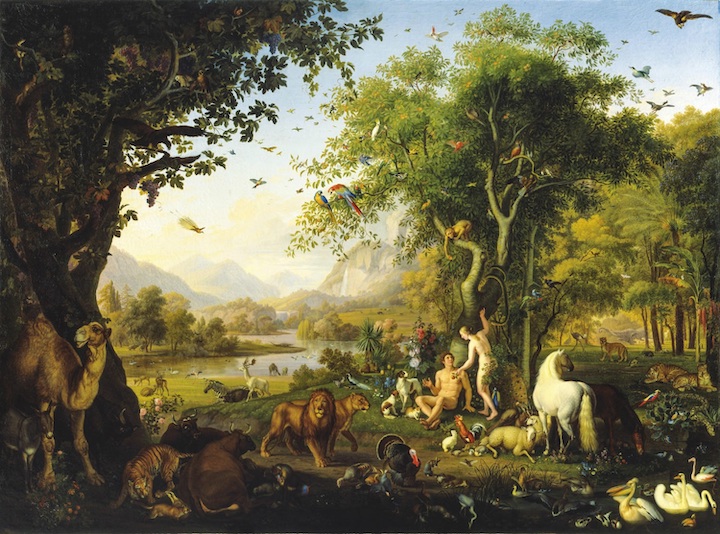With more than 20 million Americans unemployed as a consequence of the coronavirus lockdowns, much Catholic ink has been spilled on the prudential wisdom, or lack thereof, of these extreme economic and social restrictions. Whatever the answer to those practical questions, Modern Catholic Social Doctrine has developed some basic principles that, in a moment like this, should help us to step back and reflect on the meaning of work in light of Christian anthropology.
Work is at the heart of the social question, as Pope Leo XIII famously taught in Rerum Novarum. Even the “lucky 37 percent” who, despite the lockdowns can work from home, have seen their jobs transformed nearly overnight in virtual meeting spaces and processes.
“Generation Zoom’s” transition to this forum suggests there may be no going back to brick and mortar in-person meetings in many industries, institutions, and professions. Livestreaming has – for good and not – already changed how Catholic clergy and the faithful experience the sacred mysteries of the Mass. Newly online teachers have had to instantly re-define how, when, and where learning occurs.
Doctors now meet patients in digital waiting rooms. Families and friends clink virtual glasses at Zoom happy hours. As Pope Benedict XVI sagely predicted, this social transformation has made cyberspace the new “digital continent” on which Catholics are now called to evangelize.
Christ reminded his confused Pharisaical interlocutors that “from the beginning” God gifted humanity with the capacity to love, to create, and to work – not as ends in themselves, but rather as a means of sharing in his Divine life. (Matthew 19:18)
Catholic theology envisions human life as an external work of the “eternal exchange of love” that is the Holy Trinity. (CCC 221)
St. John Paul II knew intimately the inner meaning of work, having himself as a young man in Nazi-occupied Poland been forced into manual labor in a stone quarry. The uses and misuses of human labor – and the philosophical anthropologies that enabled them – became a recurring motif of his papal magisterium.
His magnum opus, Theology of the Body, deals with human sexuality, of course, but can be also read as a spirituality of work and human relationships. His exegesis of Genesis 1-3 reminds us that the life-giving meaning of work predates and survives the Fall. Adam and Eve were gifted with a capacity unique amongst all creation and manifested supremely in their vocation to name the animals. (Gen. 2:20)

Inscribed in their body-soul unity, expressed outwardly in their intellect, language, and will, was the divine logos, the eternal, Trinitarian logic of love that created and permeates all reality. It was as stewards of this incarnated mystery that they were authorized to have dominion over the earth.
St. Augustine taught that Adam and Eve initially cooperated with this logos, carefully observing, ordering, and classifying creation, thereby “cataloging” it. (κατάλογος). When they misused their freedom and disobeyed God’s plan, their work became toilsome, but never lost its fundamental alignment with God’s creativity.
In his great encyclical Laborem Exercens (“On Human Work”), St. John Paul II echoes Leo XIII by developing an “adequate understanding” of work as the “essential key” to the social question, that is, to the right ordering of society. (LE 3) This bears repeating in the economic, social, political, and cultural tsunami generated by the COVID-19 pandemic.
Work, for St. John Paul the Great, has two dimensions: the objective and subjective. We design, create, measure, and evaluate material things in the objective order. But humans know by nature that their labor has an interior, subjective sense as well: what it accomplishes in, to, and through us – and collectively, in those with whom we collaborate.
It is this subjective dimension that is decisive for human flourishing and the common good. New ideas, technologies, goods, and services are discerned and discovered precisely through authentically human imagination, intuition, creativity, and teamwork. (LE 5,6)
The history of the “subjective dimension” of the work that led to the development of penicillin offers a case in point for our coronavirus moment. Penicillin was first discovered in 1928, but lay dormant for a decade, until it could be reliably tested and reproduced. It was not until 1940, when President Roosevelt assembled an elite team of scientists, academics, and industrialists who collaborated to make it available to millions of American soldiers wounded in World War II.
During this lockdown, assembly-line workers at Ford and General Motors have been asked to turn their skills from producing vehicles to ventilators. Let us pray for the vast armada of engineers, scientists, physicians, nurses, pharmacists, and workers in countless industries whose God-given spirit of innovation and intuition may lead to a COVID-19 vaccine or other therapies.
As Catholic citizens of this world and the next, we should resist the tendency to grasp for merely technological solutions to deeply human, social, and political problems over which we have no real control.
Let us follow, instead, St. John Paul the Great’s appeal “to the beginning” in the book of Genesis, which tells us who we are, why we are here, and how we can find the meaning we so desperately seek for ourselves, our families, and our communities. A re-imagined spirituality of work might be just the medicine we need at this pandemic moment.
*Image: Adam and Eve in the Garden of Eden by Johan Wenzel Peter, c. 1825 [Pinacoteca Vaticana, Rome]














